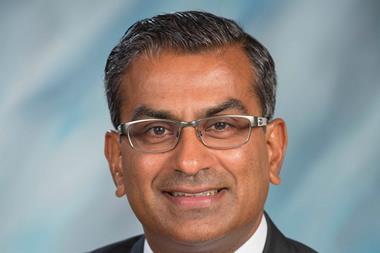REGULATORY constraints on European airport expansion present a business opportunity for Turkish airlines and hubs, believes the head of Germany’s Dusseldorf Airport cargo division.
Gerton Hulsman, Dusseldorf Airport Cargo managing director, told an audience of logistics students in Istanbul that carriers such as Turkish Airlines can take “a large chunk” of the traffic left behind by Europe.
Speaking at Yeditepe University, Hulsman was responding to a question from the audience about the disparity between the US, with just three major flag carrier airlines and the European Union with nearly 30. Was further consolidation of European airlines the answer?
Hulsman - whose airport is the third largest freight hub in Germany with 115,000 tonnes in 2013, up 13.2 per cent – observes: “The question is whether there will be enough of a market for such consolidations. British Airways, Lufthansa and Air France-KLM have huge problems and the majority of those are caused by the absence of the will to make in Europe a general hub where transportation is generated.”
Increased environmental concerns about airports in Europe, including aircraft noise, is one area that is constraining airport expansion in the European Union.
“There are still so many people who are against airports. Look at Frankfurt where they have to close down from midnight to 5am and now they want to extend it from 11pm to 6am,”adds Hulsman.
And while that is not a good position for European airports and carriers, it is “a benefit for Turkey” states Hulsman, who cited the expansion plans of Turkish Airlines chief executive (CEO) Temel Kotil.
“Mr Kotil says that he wants his airline to be the third or maybe the number one in Europe. He is not talking nonsense, and he has the right to go in that direction, because London is saturated and Frankfurt has a night ban. Paris and Amsterdam airports still have opportunities, but for the rest it becomes meagre.”
And it is not just airlines and airports in Turkey and the Middle East, which pose a challenge to the European aviation industry, but other modes as well, including rail.
Federal Express’ and UPS’ exploratory talks with the European Commission in Brussels for parcels traffic to travel on the TGV fast train network across Europe came to nothing and the project is now dead.
But, says Hulsman, transiberian rail links from China across Russia into northern Europe pose another real threat.
“In Dusseldorf, we had freighter business coming from the Far East, by ship to Dubai, and then reshaped into airline pallets for a last stretch flight to Dusseldorf.
“But that has now gone and why, because the Chinese operate a train from the Chinese Russian border to Hamburg. It was only a pilot project but nowadays, Siemens is using it perhaps two or three times a month.”
He continues: “The next step will be that [semi-finished] products are loaded on that train and made into [finished] products during the journey to Hamburg.
“Those developments are huge and I think that, as a central European, if we don’t watch out we will lose a lot of that transportation.”
Hulsman also notes that an expanded Panama Canal, able to take larger container vessels of up to 13,000 teu (standard 20ft boxes) from early 2016, will provide a further benefit for Turkey.
“When the expanded Panama Canal opens, there will be more traffic streams that do not call many more European ports and you are in the right part of the globe. You have great potential for huge distribution around the globe.”










